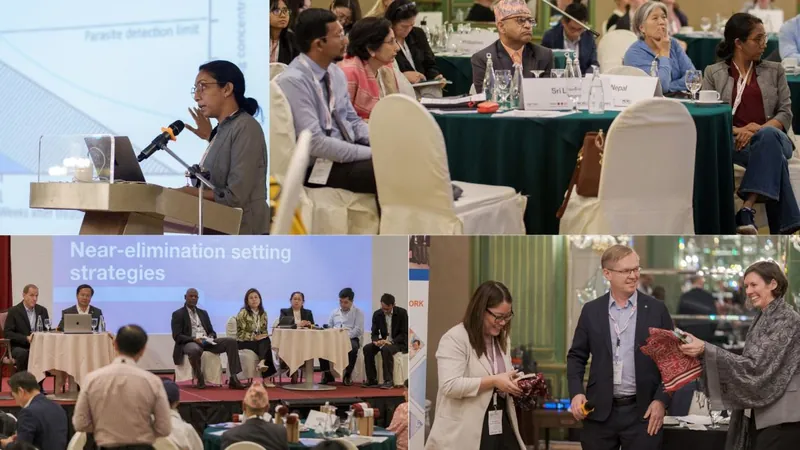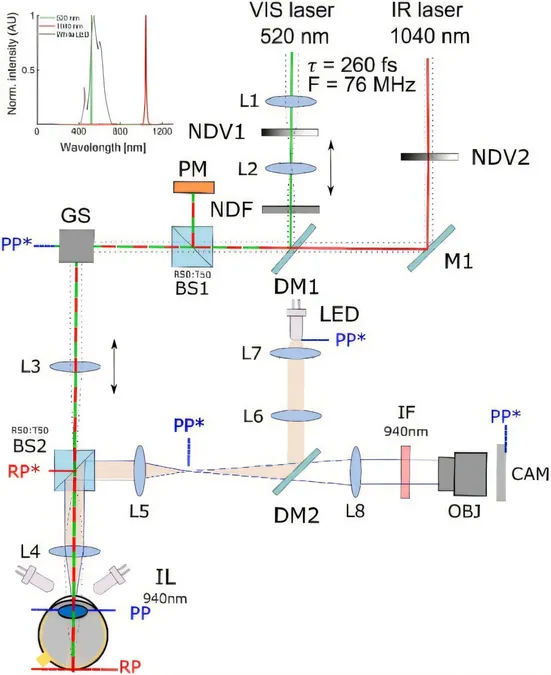
Groundbreaking Strategies and Innovations Propel Global Efforts to Eliminate Malaria
2024-11-01
Author: Mei
Introduction
The 2024 Joint Annual Meeting kicked off with inspiring speeches from leading experts in malaria research, including Dr. Neena Valecha from the Vector Control Working Group (VxWG), Prof. Xiao-Nong Zhou of the Surveillance and Response Working Group (SRWG), and Malaysia's Deputy Director of Infectious Diseases. This pivotal event brought together key stakeholders from around the Asia Pacific region to deliberate on cutting-edge diagnostics, path-breaking tools, and collaborative strategies to eradicate malaria.
Key Topics Discussed
During the meeting, sessions delved into essential topics such as innovative diagnostic tools and advanced surveillance methodologies, vital for navigating near-elimination scenarios. A significant emphasis was placed on strengthening health systems through the integration of geo-enabling health information systems, alongside capacity building and community-based initiatives. Facilitating sustainable impacts on malaria control was a recurring theme.
Interactive Workshops
Interactive workshops prioritized the development of novel tools aimed at improving case management and enhancing surveillance and response protocols. Participants engaged in fruitful discussions regarding the integration of climate data into malaria programs, potentially revolutionizing how public health officials approach disease prevention in the context of climate change. The outcomes of these workshops will be compiled and shared in a forthcoming series of published reports.
Research Updates
The meeting also showcased the Medical and Operational Research Unit's (MORU) commitment to malaria research and technical assistance. Dr. Cindy Chu updated attendees on the Southeast Asia Dose Optimization of Tafenoquine (SEADOT) study, while Dr. Chanaki Amaratunga explored new drug combinations targeting Plasmodium falciparum, the deadliest malaria parasite. Additionally, Prof. Lorenz von Seidlein presented promising advancements in malaria vaccine development across the Asia Pacific, highlighting the region's vital role in global health strategies. Dr. Steeve Ebener emphasized the Health GeoLab's innovative work in leveraging geo-enabling technologies to fortify health systems.
MORU's Renewal Announcement
An exciting outcome of the event was the announcement of MORU's renewal to host the SRWG until 2026, with Prof. Richard Maude and Dr. Caroline Lynch leading the technical committee. This continuous partnership ensures a crucial channel for MORU researchers to collaborate directly with national malaria control programs (NMCPs), enhancing their collective fight against malaria.
Attendance and Commitment
The meeting attracted a record-breaking attendance, with 111 participants, including 44 members from NMCPs representing 19 out of 22 Asia Pacific APMEN partner countries. This unprecedented representation underscores the growing commitment to malaria elimination efforts across the region.
Conclusion
For more details about APMEN and its initiatives, visit their official website where you can access the full agenda, view presentations, and see event photos. Join the fight against malaria and witness how innovative strategies are bringing us closer to a malaria-free future!




 Brasil (PT)
Brasil (PT)
 Canada (EN)
Canada (EN)
 Chile (ES)
Chile (ES)
 España (ES)
España (ES)
 France (FR)
France (FR)
 Hong Kong (EN)
Hong Kong (EN)
 Italia (IT)
Italia (IT)
 日本 (JA)
日本 (JA)
 Magyarország (HU)
Magyarország (HU)
 Norge (NO)
Norge (NO)
 Polska (PL)
Polska (PL)
 Schweiz (DE)
Schweiz (DE)
 Singapore (EN)
Singapore (EN)
 Sverige (SV)
Sverige (SV)
 Suomi (FI)
Suomi (FI)
 Türkiye (TR)
Türkiye (TR)